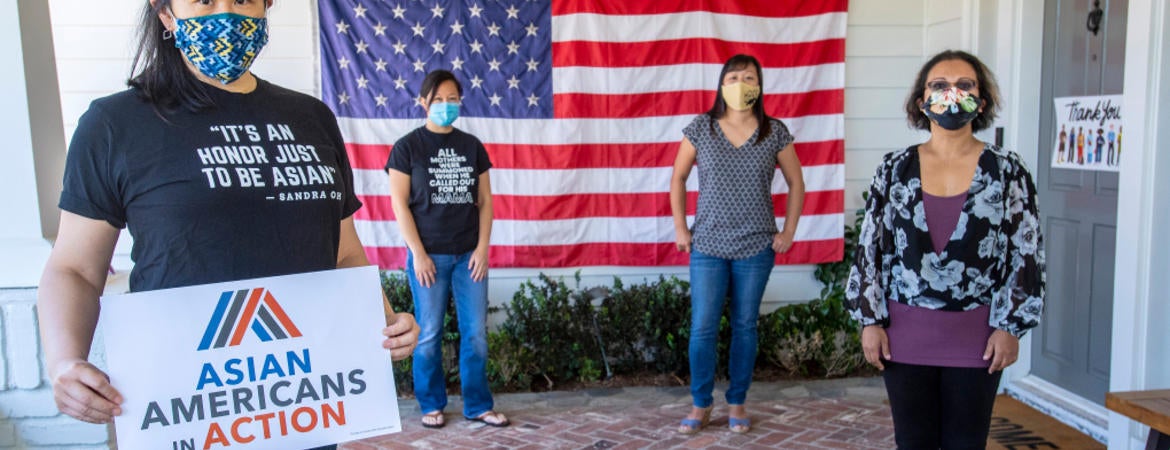Center for Social Innovation

After generations of benefiting from a conservative trope that painted Asian Americans as shining examples of how to assimilate and overcome racism, Tammy Kim said a wave of discrimination tied to the coronavirus pandemic has reshaped reality for many Asian Americans in Orange County.
“We went from ‘model minority’ status to suddenly, at the drop of a hat, being ‘foreigners’ who are told to go back where we came from,” said Kim, managing director of the Korean American Center in Irvine.
Now, say Kim and others, there’s a sense that acceptance of Asian Americans and Pacific Islanders is as fragile as it is for Latinx, Black and other minority communities.
In Orange County, neither major party holds a voter registration advantage within AAPI communities; Democrats and Republicans each now claim about 30%, while some 40% of local Asian Americans and Pacific Islanders are registered as independents.
But at the state and national levels, Asian Americans have long leaned left, with a majority supporting traditionally liberal issues such as government assistance programs, a pathway to citizenship for immigrants and gun control. And, nationally, Asians are twice as likely to register as Democrats than as Republicans, according to a 2018 survey by the firm AAPI Data.
Still, for decades, Orange County has been an exception.
That’s partly because studies show all immigrant groups are likely to take on the dominant politics of their community, at least initially. By that reckoning, Asian voters who came to Orange County in recent decades were, until recently, likely to be Republican, while people who came to, say, San Francisco, tended to be Democrats.
Another factor is that the largest AAPI community in Orange County is Vietnamese Americans, who remain more likely than any other Asian immigrant group to register as Republicans.
Republicans haven’t traditionally done a great job at reaching out to AAPI voters either, though the survey from AAPI Data shows they’ve done a better job than Democrats.